Diplomat
|
Read other articles:

Venetian dialect of Puebla, Mexico This article needs additional citations for verification. Please help improve this article by adding citations to reliable sources. Unsourced material may be challenged and removed.Find sources: Chipilo Venetian dialect – news · newspapers · books · scholar · JSTOR (September 2014) (Learn how and when to remove this message) Chipilo VenetianChipileñoNative toMexicoNative speakers2,500 (2011)[1]Language…

Unreleased superhero film completed in 1994 directed by Oley Sassone This article is about the unreleased 1994 film. For the upcoming 2025 film of the same name, see The Fantastic Four (2025 film). This article needs additional citations for verification. Please help improve this article by adding citations to reliable sources. Unsourced material may be challenged and removed.Find sources: The Fantastic Four unreleased film – news · newspapers · books · sc…

Williams nel 2017 Mark Williams (Bromsgrove, 22 agosto 1959) è un attore, comico e sceneggiatore britannico. È noto principalmente per aver interpretato Arthur Weasley nei film tratti dalla saga di Harry Potter e l'omonimo protagonista nella serie TV della BBC Padre Brown. Indice 1 Biografia 2 Filmografia parziale 2.1 Cinema 2.2 Televisione 3 Doppiatore 4 Doppiatori italiani 5 Altri progetti 6 Collegamenti esterni Biografia Dal pubblico britannico è conosciuto principalmente come uno dei prot…

Questa voce sull'argomento attori statunitensi è solo un abbozzo. Contribuisci a migliorarla secondo le convenzioni di Wikipedia. Segui i suggerimenti del progetto di riferimento. Omid Abtahi nel 2016 Omid Abtahi (Tehran, 12 luglio 1979) è un attore iraniano naturalizzato statunitense noto per l'interpretazione di Salim nella serie televisiva American Gods e del dottor Pershing nelle serie di Disney+ The Mandalorian. Indice 1 Filmografia 1.1 Attore 1.1.1 Cinema 1.1.2 Televisione 1.2 Doppi…

Pan American Men's Handball ChampionshipSportHandballFounded1980First season1980Ceased2018Replaced bySouth and Central American Championship and North America and Caribbean ChampionshipNo. of teams12ContinentPATHF (Americas)Most titles Cuba (8 titles) The Pan American Men's Handball Championship, also called PanAmericano, was the official competition for senior national handball teams of North, Central, and South America and the Caribbean. It took place every two years and was organized…
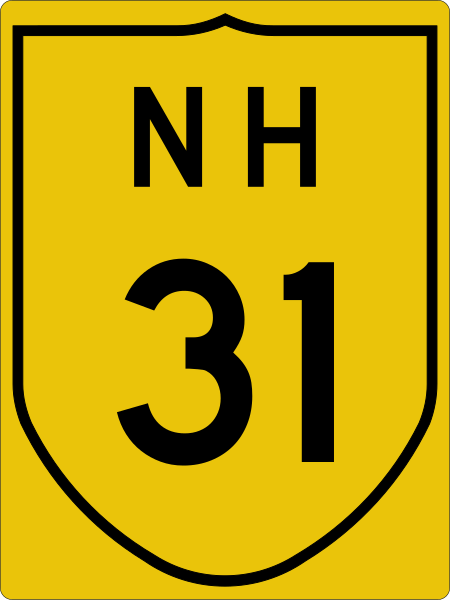
National highway in India National Highway 231Map of National Highway 231 in redRoute informationLength196 km (122 mi)Major junctionsWest End endMaheshkhuntEast End endKora LocationCountryIndiaStatesBiharPrimarydestinations Maheshkhunt Sonbarsa Saharsa Madhepura Murliganj Banmankhi Purnia Kora Highway system Roads in India Expressways National State Asian ← NH 31→ NH 31 National Highway 231 (NH 231) is a National Highway in India. It connects Maheshkhunt, Saharsa, Ma…

В Википедии есть статьи о других людях с такой фамилией, см. Тихомиров; Тихомиров, Михаил. Михаил Николаевич Тихомиров Дата рождения 19 (31) мая 1893 Место рождения Москва, Российская империя[1] Дата смерти 2 сентября 1965(1965-09-02)[1] (72 года) Место смерти Москва, СССР[1] Стра…

This article does not cite any sources. Please help improve this article by adding citations to reliable sources. Unsourced material may be challenged and removed.Find sources: Remix Stories Vol. 1 – news · newspapers · books · scholar · JSTOR (May 2009) (Learn how and when to remove this message) 2008 EP by UnkleRemix Stories Vol. 1EP by UnkleReleased8 September 2008GenreElectronicLabelSurrender AllProducerUNKLEUnkle chronology Restless(2008) Rem…

此條目可参照英語維基百科相應條目来扩充。 (2021年5月6日)若您熟悉来源语言和主题,请协助参考外语维基百科扩充条目。请勿直接提交机械翻译,也不要翻译不可靠、低品质内容。依版权协议,译文需在编辑摘要注明来源,或于讨论页顶部标记{{Translated page}}标签。 约翰斯顿环礁Kalama Atoll 美國本土外小島嶼 Johnston Atoll 旗幟颂歌:《星條旗》The Star-Spangled Banner約翰斯頓環礁地�…
2020年夏季奥林匹克运动会波兰代表團波兰国旗IOC編碼POLNOC波蘭奧林匹克委員會網站olimpijski.pl(英文)(波兰文)2020年夏季奥林匹克运动会(東京)2021年7月23日至8月8日(受2019冠状病毒病疫情影响推迟,但仍保留原定名称)運動員206參賽項目24个大项旗手开幕式:帕维尔·科热尼奥夫斯基(游泳)和马娅·沃什乔夫斯卡(自行车)[1]闭幕式:卡罗利娜·纳亚(皮划艇)[2…

Pour les articles homonymes, voir Pierre Lelong. Cet article est une ébauche concernant un homme politique français. Vous pouvez partager vos connaissances en l’améliorant (comment ?) selon les recommandations des projets correspondants. Pierre Lelong Fonctions Député français 11 juillet 1968 – 9 juillet 1974(5 ans, 11 mois et 28 jours) Élection 30 juin 1968 Réélection 11 mars 1973 Circonscription 4e du Finistère Législature IVe et Ve (Cinquième République) G…

Gay City News / gcngcn cover (25 June 2020)TypeLGBT newspaperOwner(s)Schneps MediaFounder(s)Troy Masters, Paul SchindlerPublisherVictoria Schneps-UnisPresidentVictoria Schneps-UnisEditorPaul SchindlerFounded1994LanguageEnglishHeadquartersNew York CitySister newspapersThe Villager, Long Island Press, Metro PhiladelphiaWebsitewww.gaycitynews.com Gay City News (stylized as gcn) is a free weekly LGBT newspaper based in New York City focusing on local and national issues relating to LGBT community.&#…

1676 demonstration of light's finite speed by Danish astronomer Ole Rømer Ole Rømer (1644–1710) became a government official in his native Denmark after his discovery of the speed of light (1676). The engraving is probably posthumous. Rømer's determination of the speed of light was the demonstration in 1676 that light has an apprehensible, measurable speed and so does not travel instantaneously. The discovery is usually attributed to Danish astronomer Ole Rømer,[note 1] who was wor…

Emma Elizabeth SmithIlustrasi kontemporer Emma SmithLahirc. 1843Tidak di ketahuiMeninggal4 April 1888 (usia 45)London, InggrisPekerjaanPelacurDikenal atasTerduga korban Jack the Ripper Emma Elizabeth Smith (c. 1843 – 4 April 1888) adalah seorang pelacur dan korban pembunuhan yang misterius di akhir abad ke-19 London. Pembunuhannya adalah yang pertama dari Pembunuhan Whitechapel, dan ada kemungkinan dia adalah korban dari pembunuh berantai yang dikenal sebagai Jack the Ripper, meskipun ini dian…
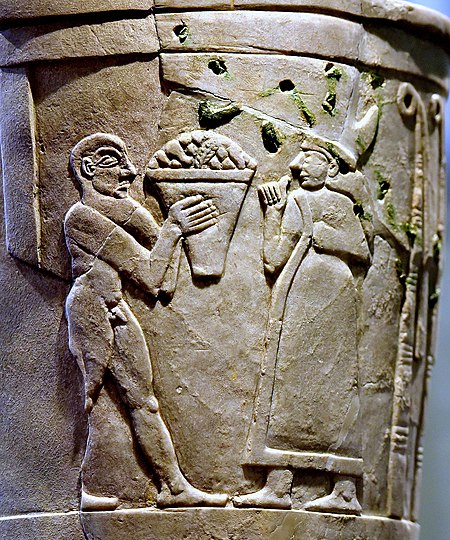
Ancient Mesopotamian goddess This article is about ancient Mesopotamian goddess. For other uses, see Inanna (disambiguation). Not to be confused with Inamma. Ishtar redirects here. For other uses, see Ishtar (disambiguation). Inanna(Ishtar) Queen of Heaven Goddess of love, war, and fertility Goddess Ishtar on an Akkadian Empire seal, 2350–2150 BCE. She is equipped with weapons on her back, has a horned helmet, places her foot in a dominant posture upon a lion secured by a leash and is accompan…

American college football season 2017 Georgia State Panthers footballCure Bowl championCure Bowl, W 27–17 vs. Western KentuckyConferenceSun Belt ConferenceRecord7–5 (5–3 Sun Belt)Head coachShawn Elliott (1st season)Offensive coordinatorTravis Trickett (1st season)Defensive coordinatorNate Fuqua (1st season)Home stadiumGeorgia State StadiumSeasons← 20162018 → 2017 Sun Belt Conference football standings vte Conf Overall Team W L …
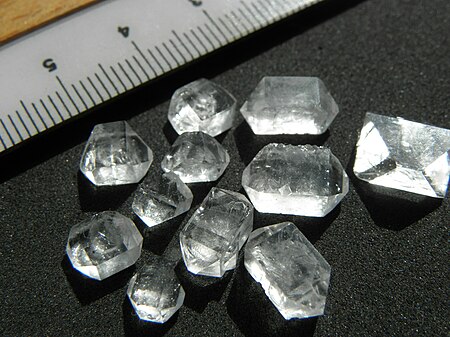
Diidrogenofosfato di potassio Due celle unitarie di diidrogenofosfato di potassio viste lungo l'asse b Nome IUPACDiidrogenofosfato di potassiodiidrogeno tetraossidofosfato(1-) di potassio Nomi alternativiFosfato di potassio monobasico Caratteristiche generaliFormula bruta o molecolareKH2PO4 Massa molecolare (u)136,09 Aspettosolido incolore Numero CAS7778-77-0 Numero EINECS231-913-4 PubChem516951, 24506 e 21924740 DrugBankDB09413 e DBDB09413 SMILES[K+].OP(O)([O-])=O Proprietà chimico-fisicheDens…

California bootlegger and pimp Albert MarcoL.A. Herald, July 23, 1926BornMarco Alboric. 1887ItalyDiedUnknownUnknownOther namesAlberto Marco, Albert Black Marco Albori, better known by his alias Albert Marco, was an Italian-born bootlegger and pimp who was active in Los Angeles during the Prohibition Era in the 1920s. He is said to be the first to transport Canadian whiskey to Los Angeles. Marco worked closely with Charles H. Crawford, who ran city politics along with Kent Kane Parrot.…
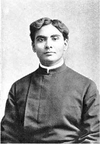
Religious Organisation Not to be confused with International Vedanta Society. Swami Vivekananda, the founder of the first Vedanta Society in the West, in New York City Vedanta Societies refer to organizations, groups, or societies formed for the study, practice, and propagation of Vedanta, the culmination of Vedas. More specifically, they comprise the American arm of the Indian Ramakrishna movement[1] and refer to branches of the Ramakrishna Order located outside India.[2] Carl J…
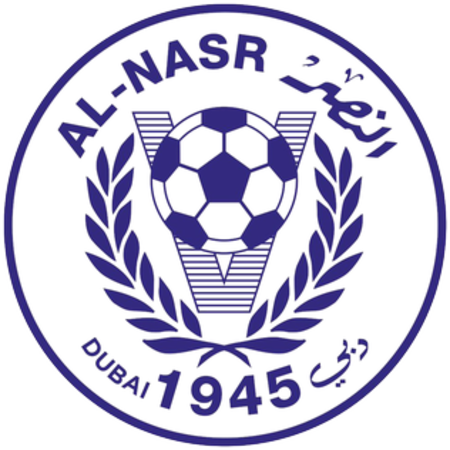
لمعانٍ أخرى، طالع نادي النصر (توضيح). النصر شعار نادي النصر الاسم الكامل نادي النصر الثقافي الرياضي اللقب العميد [1] الألوان أزرق، أبيض المؤسس محمد علي زينل تأسس عام 1945 (منذ 79 سنة) الملعب ملعب آل مكتوم(السعة: 16,000) البلد الإمارات العربية ا…

